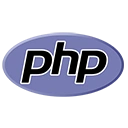PHP extensions are powerful tools for extending PHP's capabilities by adding custom functions and classes. In this guide, we'll explore the process of building custom PHP extensions that go beyond standard functions and cover advanced topics in extension development:
1. Why Build Custom PHP Extensions?
Custom PHP extensions allow you to:
- Improve performance by writing C or C++ code for CPU-intensive tasks.
- Access system-level features and libraries.
- Add domain-specific functionality to PHP.
- Integrate with external services or protocols.
2. Extension Development Prerequisites
Before you start, ensure you have:
- A C or C++ development environment (e.g., GCC).
- PHP source code and development tools (phpize).
- Knowledge of C/C++ programming and PHP internals.
3. Creating a Basic Extension
Start by creating a basic extension with a simple function. Use the
ext_skel4. Function Registration
Register your custom functions using PHP's extension API. This involves defining the function's name, parameters, and callback function.
PHP_FUNCTION(my_custom_function);
5. Function Implementation
Implement the custom function in C or C++. You can perform tasks that require low-level access, such as file operations, cryptography, or interacting with system libraries.
PHP_FUNCTION(my_custom_function) {
// Your C/C++ code here
}
6. Compiling and Installing
Compile your extension using
phpize ./configure
make
make install
// Configure php.ini to load the extension
7. Advanced Extension Topics
Explore advanced topics in extension development:
- Handling resources and objects.
- Working with PHP streams.
- Creating classes and methods.
- Memory management and error handling.
- Thread safety and safe usage of PHP globals.
8. Debugging and Profiling
Use debugging and profiling tools for extension development, such as gdb, Valgrind, and Xdebug. These tools help identify and resolve issues in your extension.
9. Publishing Your Extension
Share your extension with the PHP community by publishing it on PECL (PHP Extension Community Library) or as an open-source project on platforms like GitHub.
10. Security and Best Practices
Follow best practices for extension development to ensure security and compatibility with different PHP versions. Carefully handle memory and error conditions to prevent crashes or vulnerabilities.
Conclusion
Building custom PHP extensions that go beyond standard functions is a powerful way to enhance PHP's capabilities. By mastering extension development and addressing advanced topics, you can create valuable extensions that provide unique functionality and improve the performance of PHP applications.

